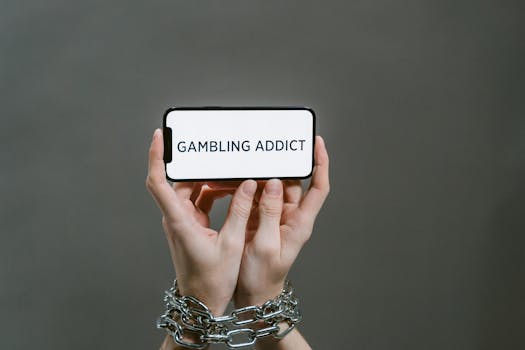Why Quitting Feels Harder After a Losing Streak
Introduction Quitting after a series of losses can feel disproportionately difficult, a phenomenon that many individuals encounter whether in professional, personal, or gaming scenarios. This article explores why the decision to quit feels more challenging following a losing streak and discusses various strategies to handle this situation effectively.
Understanding the Psychology Behind the Challenge The first aspect to consider is the psychological impact of repeated losses. When individuals experience loss, the emotional and cognitive responses can intensify, leading to what is known as the 'sunk cost fallacy'. This fallacy occurs when people continue a behavior as a result of previously invested resources (time, money, effort) rather than cutting their losses. This often results in the irrational continuation of the activity, hoping to recover past losses against better judgment.
Approaches to Manage Quitting After a Losing Streak
- Cognitive Behavioral Techniques
- Setting Defined Limits
One effective approach is through cognitive behavioral techniques, which involve recognizing and restructuring negative thought patterns. By identifying thoughts like "I must recover my losses" as irrational, individuals can begin to make decisions based on current and future benefits rather than past losses.
Advantages include the development of personal insight and long-term coping strategies. However, the disadvantage is that it requires time and possibly professional guidance to be effective.
Another strategy is setting strict limits before engaging in the activity where loss is a risk. These limits could be related to the amount of time or resources (like money) one is willing to expend.
This approach helps by providing clear boundaries that signal when it’s time to stop. The disadvantage lies in the potential difficulty in adhering to these limits once they are reached, especially under the influence of high emotions.
Practical Example Consider a gambler who decides beforehand that they will only spend $100 at the casino. This predefined limit can help mitigate the risk of the sunk cost fallacy, even if they are on a losing streak.
Comparison of Approaches While cognitive behavioral techniques focus on changing thought processes and emotional responses, setting defined limits deals directly with the practical aspect of the situation. Both methods have their merits, but the combination of both could be particularly effective for managing the urge to continue after a losing streak.
Conclusion Understanding why quitting feels harder after a losing streak is crucial in managing such situations effectively. By employing strategies like cognitive behavioral techniques and setting defined limits, individuals can better navigate the complexities of decision-making influenced by losses. Whether faced with a losing streak in gambling, investing, or any other aspect of life, these approaches can help mitigate the psychological impact of loss and promote healthier decision-making practices.
Remember, it's important to approach losses with a clear mindset and practical strategies rather than letting emotions dictate actions. For those struggling to manage this challenge, seeking professional advice might be a beneficial step.
Call to Action If you find yourself struggling with quitting after a losing streak, consider applying these strategies to your decision-making process. Reflect on your thought patterns and set clear, strict limits for yourself in any high-risk situations. Remember, sometimes the best decision is to cut your losses and move forward.

.png)





